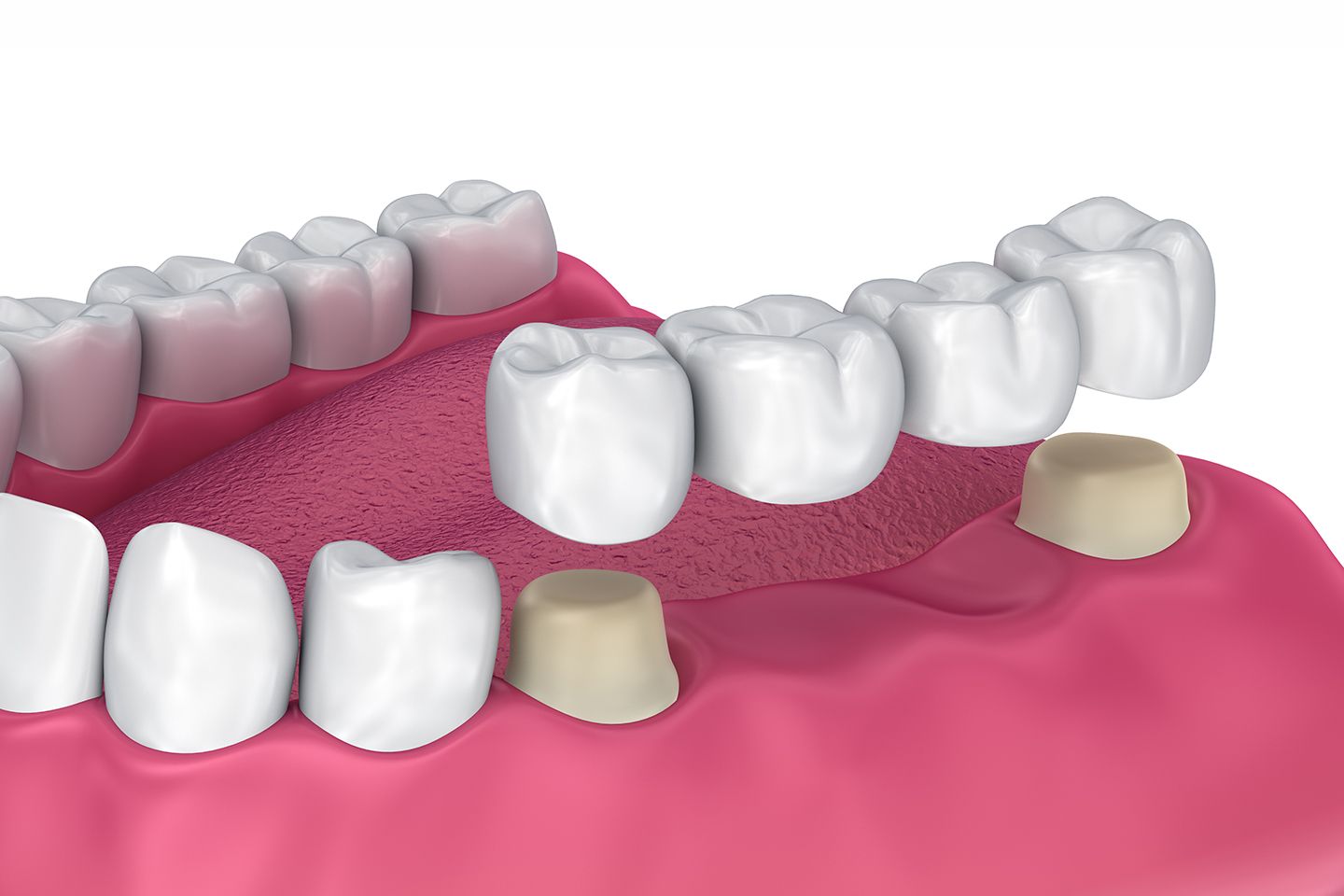Bridges Dental

Bridges Dental
Dental bridges are used to close or bridge the gap between teeth resulted from a missing tooth. These bridges are created by two or more abutment teeth. These teeth can be made of different materials such as porcelain, gold, alloys, or a combination of these materials.
Types of bridges:
There are different types of dental bridges.
Cantilever bridges:
when there are adjacent teeth on only one side of the missing tooth, we can go for Cantilever bridges. However, this type is not recommended for the back of the mouth.
Traditional bridges:
In this type, a crown is created for the implant on any side of the missing tooth, keeping a pontic in between. These are one of the common types and mainly made of ceramics or porcelain feud to metals.
Maryland bonded bridges:
These bridges are supported by porcelain or metal frameworks and made of various materials like plastic, porcelain, and porcelain fused to metal.
Implant-supported bridges:
In this type of bridge, the implant is placed in the missing tooth to hold the bridge in position.
Benefits of bridges:
The benefits of bridges are
- They help to restore one’s smile
- The shape of the face is maintained
- Help to chew and speak properly
- Help remaining teeth to be in the position
- Helps distributing the force in every bite with a tooth in place of the missing one.
Cost of bridges:
The cost of traditional or cantilever bridges ranges from cost $2,000 – $5,000 for one pontic and a crown for each abutment tooth. For Maryland bridges, the charge is around $1,500 – $2,500 for one pontic along with the framework, or wings, attached to the abutment teeth. Moreover, an implant-supported bridge could cost $5,000 – $15,000 for a bridge with two dental implants spanning three or four teeth.
